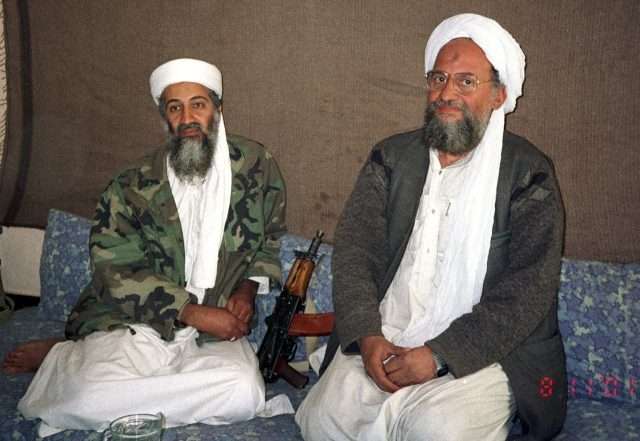
Author: Giuliano Bifolchi
The killing of al-Qaeda’s leader Ayman al-Zawahiri in Kabul by a U.S. drone strike confirmed Washington’s interests in the region and the Taliban’s policy to host terrorist organisations’ high-ranking leaders in the country, which has become a “safe heaven” for different jihadist groups.
On August 1st, 2022, U.S. President Joe Biden confirmed that a Central Intelligence Agency (CIA) drone strike killed al-Qaeda’s leader Ayman al-Zawahiri in the Afghan capital Kabul. The U.S. President also reported that none of the members of the al-Zawahiri family was injured during the strike, and there were no casualties among the civilian population in Afghanistan either.
Joe Biden expressed hope that eliminating the head of al-Qaeda would bring peace to the relatives of the victims of the September 11th, 2001 attacks.
The head of the White House described the counter-terrorist operation as successful. U.S. and international sources reported that the drone attack was carried out on July 31st, 2022. On the same day, Rahmatullah Nabil, former national security chief in Afghanistan, said that U.S. drones attacked several targets in Kabul.
Afghanistan scenario
Since the U.S. troops’ withdrawal from Afghanistan and the Taliban’s rise to power, several Intelligence agencies have reported the presence of al-Qaeda’s high-ranking officials in Afghanistan. Al-Zawahiri’s death confirms that Afghanistan has become a “safe haven” for terrorist organisations such as al-Qaeda (In Afghanistan, drug trafficking and terrorism are increasing among regional concerns).
According to local Afghan sources, Sirajuddin Haqqani, Taiban’s Interior Affairs Minister, was hosting peace talks between Tehrik-e Taliban Pakistan (TTP) and 12 members of an official Pakistani delegation in the Wazir Akbar Khan area in the city of Kabul when the drone strike killed al-Zawahiri.
Local and international sources also reported that the house where al-Zawahiri was living targeted by the drone strike belonged to Sarajuddin Haqqani, who left Kabul with an armed convoy, including civilians, heading towards Chark of Logar province and from there to other districts of Paktia province.
Al-Zawahiri’s death represents a significant victory for the United States in the fight against international terrorism. Al-Zawahiri led the group after Osama bin Laden’s death in 2011 and expanded the number of affiliates worldwide.
Before heading al-Qaeda, Zawahiri led the Egyptian Islamic Jihad (EIJ). On August 6th, 1988, the EIJ sent a fax to an Egyptian newspaper stating that the terrorist group would take revenge on the United States for the arrest of several members of the group. The next day, al-Qaeda bombed the U.S. embassies in Kenya and Tanzania, killing 224 people. The U.S. government charged Zawahiri with involvement in the attacks. In 1999, an Egyptian court sentenced Zawahiri to death in absentia for his involvement in an alleged terrorist plot against U.S. interests in Albania.
Geopolitical assessment
Al-Zawahiri’s death confirmed security and terrorist problems in Afghanistan and the impossibility of relying on the Taliban in the fight against terrorist groups. Indeed, Taliban spokesman Zabihullah Mujahid confirmed the al-Qaeda leader’s killing and condemned CIA operations, calling it a violation of “international principles”.
U.S. President Joe Biden might use al-Zawahiri’s death to promote its strategy and Administration after a series of setbacks and confirms Washington’s commitment to the fight against terrorism and stabilising Afghanistan. It should be noted that, after the U.S. troops withdrew from Afghanistan and the Taliban established an interim government, the U.S. Administration has been harshly criticised and questioned (The new geopolitical game of Afghanistan).
As happened in the past with the previous al-Qaeda leader Osama bin Liden’s killing under Obama Administration and Islamic State leader Abu Bakr al-Baghdadi’s death under Trump Administration, Joe Biden might use this success to turn the tide of domestic politics and refresh the U.S. image in the global arena.
Sirajuddin Haqqani’s role in sheltering al-Zawahiri in Kabul or sharing information about his location is still under investigation and discussion.
As noted by Rahmatullah Nabil, former national security chief in Afghanistan, in the first case, if Sirajuddin Haqqani and the Haqqani Network were involved in sheltering al-Qaeda’s leader, the position of the current Interior Affairs Ministry of the Taliban interim Government could have been compromised in favour of the Quetta council of the Taliban under the leadership of Mullah Brader and Mulla Yaqob who have tried to build relations with the White House after Doha Agreements. By contrast, in the latter case, Sirajuddin Haqqani could have exploited the Pakistani Inter-Service Intelligence (ISI) to share the information about al-Zawahiri’s location with the CIA and mediate his position with the United States and remove himself from Washington’s black list.
Al-Zawahiri’s killing also highlighted the network of sources and contacts developed by the United States in 20 years of presence in Afghanistan. The CIA and Washington might use this network to control Afghan local dynamics and organise counter-terrorist operations against groups such as al-Qaeda or the Islamic State, which operates in Afghanistan, especially after the Taliban took control of the country.
